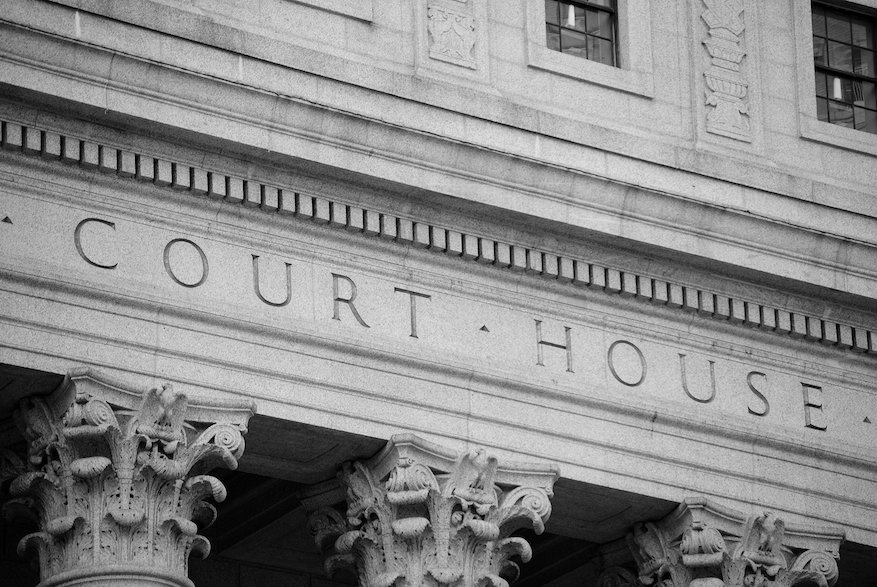An Overview of The Federal Criminal Process

Finding out that you may be charged with a serious crime can be stressful, and you may feel particularly overwhelmed if you are facing potential criminal charges at the federal level. The fact is that the federal criminal process is much different than facing criminal charges in state courts, and it is important that you know what your rights are and what options you have throughout the process. Unfortunately, most people who find themselves facing criminal charges do not know how the federal criminal process works, or what knowledge they have has been acquired by watching inaccurate portrayals in movies and on TV.
If you face federal charges, it is then critical that you work with an experienced criminal defense lawyer who can look out for your best interests and walk you through this complex process. Additionally, having a better understanding of what the federal criminal justice process entails can help you feel more prepared moving forward.
To help you better understand your next steps, keep reading for an overview of each step in the federal criminal process.
Investigation
If you are suspected of a federal crime, the first phase in the criminal justice system will be a federal investigation. There are several government agencies that may be involved in the investigation stage if they believe that a federal crime has been committed including the:
- Federal Bureau of Investigation (FBI)
- Drug Enforcement Administration (DEA)
- Department of Homeland Security (DHS)
- Bureau of Alcohol, Firearms, and Explosives (ATF)
- And United States Secret Service (USSS)
The federal investigation phase can take years, as the relevant government agency will have to determine if a federal crime was committed, and if so, who was responsible, and they will also have to collect evidence to build a case. Once they have gathered enough evidence to build their case, the agency (or agencies) responsible may refer their case to prosecutors.
Grand Jury Indictment and Charges
After being presented with the relevant documentation and evidence, the prosecution must decide whether there is enough evidence to indict (charge) the suspected felon. Felony offenses at the federal level must be charged via indictment from a Grand Jury of 23 impartial citizens. The prosecutor will present their findings to the grand jury, after which the jurors will cast a secret vote on whether they believe there is sufficient evidence to justify the indictment.
In order for a grand jury to indict, at least 12 jurors must agree. After they have been indicted, the defendant should retain a lawyer, or they will be assigned a public defender if they can’t afford to hire an attorney.
Initial Appearance and Arraignment
Soon after the indictment, the defendant will be brought into custody and will appear before a judge for an initial hearing. At this hearing, also known as an arraignment, the defendant will be formally told what the charges against them are, and they will be given a copy of these charges. The defendant will then be asked to enter a plea (either guilty or not guilty) once they have been presented with the charges and their rights have been explained to them. At this time, the bail terms may also be considered.
If the defendant and their attorney have already negotiated with the prosecutor and have agreed upon a plea bargain, the defendant will likely enter a guilty plea.
The Preliminary Hearing

If there is no plea deal and the defendant pleads not guilty, a preliminary hearing will be held in which a judge will review the evidence presented by prosecutors and determine whether there is enough evidence to even warrant a trial. The preliminary hearing must occur within 12 days of arraignment if the defendant is held in jail, or within 21 days for those not in custody.
During this hearing, the prosecution will present evidence including witness testimony, usually from the federal agent who lead the investigation. For each government witness, the defense attorney has the opportunity to cross-examine them to test the accuracy and credibility of their testimony. Following the preliminary hearing, the judge will decide whether there is probable cause to move forward with a trial or if the charges should be dismissed due to a lack of evidence.
Discovery
Following the preliminary hearing is the discovery phase during which the prosecution and defense begin to prepare their cases for trial. During this phase, both the prosecution and defense exchange evidence they plan to use in court so that each side can prepare properly for the trial.
One of the most important parts of the discovery phase involves talking to any witnesses who may be called to testify in court. During the discovery phase, federal prosecutors must provide the defense with any physical evidence they intend to use in court. The federal prosecutor must also provide the defense with any exculpatory evidence that could be used to prove the defendant’s innocence.
Plea Bargaining
What you may not realize is that many federal criminal cases never actually make it to trial because the defendant and prosecution often work out a plea bargain in pre-trial. A plea bargain is where a defendant agrees to plead guilty in exchange for leniency of reduced charges. In the plea bargaining phase, negotiations take place between the prosecution and defense lawyer, and defendants are often incentivized to plead guilty with a reduced sentence.
Pre-Trial Motions
Filing or responding to motions is one of the last steps before a case goes to trial. When the prosecution or defense wants the court to decide on a specific issue before the trial, they can make this request by filing a motion. Common motions include:
- Motion to Dismiss: This is a request to dismiss a specific charge, or the case in its entirety, if the evidence is insufficient to support criminal charges.
- Motion to Suppress: This is an attempt to make certain evidence inadmissible. This motion is usually filed if evidence was obtained in a manner that violated the defendant’s constitutional rights.
- Motion to Compel: This is used when the prosecution fails to share important information with the defense that could help their case. A defense lawyer will file this motion to compel the prosecution to provide the requested information.
The Federal Trial
If negotiations with the prosecution do not result in a plea deal, the case will proceed to a trial where both sides will present their argument in front of a jury. The jury will decide if there is sufficient evidence to find the defendant guilty beyond a reasonable doubt. Both sides are involved in jury selection and will ask potential jurors questions to help them decide whether to excuse jurors who they are worried may have a potential bias. Once both sides have worked together to pick a jury, the trial will proceed with the following steps:
- Opening Statements
- Prosecutions Case
- The Defendant’s Case
- Objections
- And Closing Statements
The jury will then deliberate and decide if the defendant is guilty based on the evidence provided. If the defendant is found guilty, then sentencing will begin.
Sentencing
Once a defendant enters a plea agreement or is found guilty in a criminal trial, sentencing will begin; however, this process can take several months to complete. Before the sentencing hearing, both sides can file motions related to sentencing, usually requesting a stricter or more lenient sentence. At the sentencing hearing, the federal judge considers documents related to the case (including motions), and they will determine what penalties will be imposed based on applicable laws regarding maximum and minimum penalties.
Appeal
In the event that a defendant is found guilty, they have the right to appeal the verdict. The appellate court will review transcripts from the trial and decide whether any errors occurred that could have affected the trial’s outcome. If they discover an error, the appellate court can reverse or modify the decision or even order a new trial. If the appeal is unsuccessful, the defendant may be able to appeal to the United States Supreme Court, which would issue a final decision. The federal criminal process can be lengthy and complicated, but an experienced criminal defense attorney can help you navigate this difficult process.
If you have been charged with a federal crime, contact us to learn how our attorneys can give you the best chances of achieving a favorable outcome.

